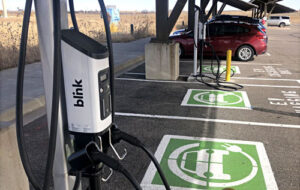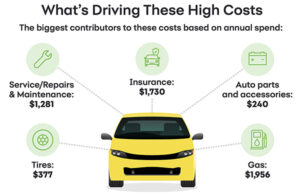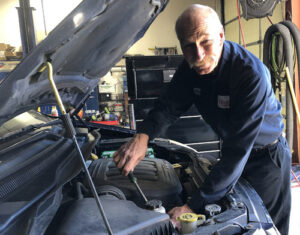Ford Motor Company led all manufacturers with over 3.3 million vehicles recalled across 49 campaigns, nearly half of Q2 affected vehicles
St. Peters, Mo.—A sharp rise in U.S. vehicle recalls is triggering new concerns for drivers and dealerships alike. According to BizzyCar’s Q2 2025 Recall Report, more than 7.3 million vehicles were recalled between April and June. This marks the highest quarterly total in over a year and more than double the volume reported in Q1.
Ford Motor Company led all manufacturers with over 3.3 million vehicles recalled across 49 campaigns. That’s nearly half of all vehicles affected in Q2. Notably, 94.6% of all vehicles recalled this quarter involve defects that pose a risk of crash or injury if not addressed
Q2 2025 Recalls Issued by Brand
- Ford: 49 recalls
- Stellantis: 9 recalls
- Volkswagen/Audi: 9 recalls
- Honda: 8 recalls
- Mercedes-Benz: 8 recalls
- General Motors: 7 recalls
- Mazda: 4 recalls
- Polestar: 4 recalls
- BMW: 3 recalls
- Porsche: 3 recalls
- Hyundai: 3 recalls
- Nissan: 2 recalls
- Volvo: 2 recalls
- Kia: 2 recalls
- Rivian: 2 recalls
- Tesla: 2 recalls
- Toyota: 1 recall
- Subaru: 1 recall
- McLaren: 1 recall
- Maserati: 1 recall
- Aston Martin: 1 recall
Key Findings from the Q2 2025 Recall Report:
- 7,322,767 vehicles recalled in Q2
- More than 3.3 million Ford vehicles involved across 49 recall campaigns
- 94.6% of Q2 recalls pose crash or injury risk
- Top issue: Back-over prevention systems (2.59 million vehicles affected)
- Three “Do Not Drive” and three “Park Outside” advisories issued
- 1.09 million vehicles eligible for Over-the-Air (OTA) software-based repairs
While OTA technology continues to expand, most recall repairs still require a physical visit. Since early 2022, only 14.7% of all recalls have been addressed through OTA updates, highlighting the ongoing importance of in-person service, especially for hardware-related safety fixes like steering, brakes, and seat systems.


“OTA updates offer convenience, but they also eliminate critical dealership touchpoints,” said Ryan Maher, CEO of BizzyCar. “Many safety fixes still depend on trained technicians and certified parts. Dealerships remain the front line of recall completion.”
Industry Implications and Dealer Opportunity
BizzyCar analysts view the Q2 surge as a return to historical recall norms after an unusually quiet Q1. But they caution that supply chain disruptions and global trade pressures could drive even higher volumes in the second half of the year.
This mirrors trends seen in 2020–2021, when parts shortages led OEMs to ship vehicles that later required retrofitting. For dealerships, high recall volume presents a clear opportunity to re-engage customers, boost fixed ops revenue, and strengthen long-term loyalty.
“Recall repairs are high-value, low-friction service lane visits,” said Maher. “For dealers investing in mobile service or streamlined scheduling, this is a chance to turn a compliance obligation into a retention engine.”











Comments are closed.